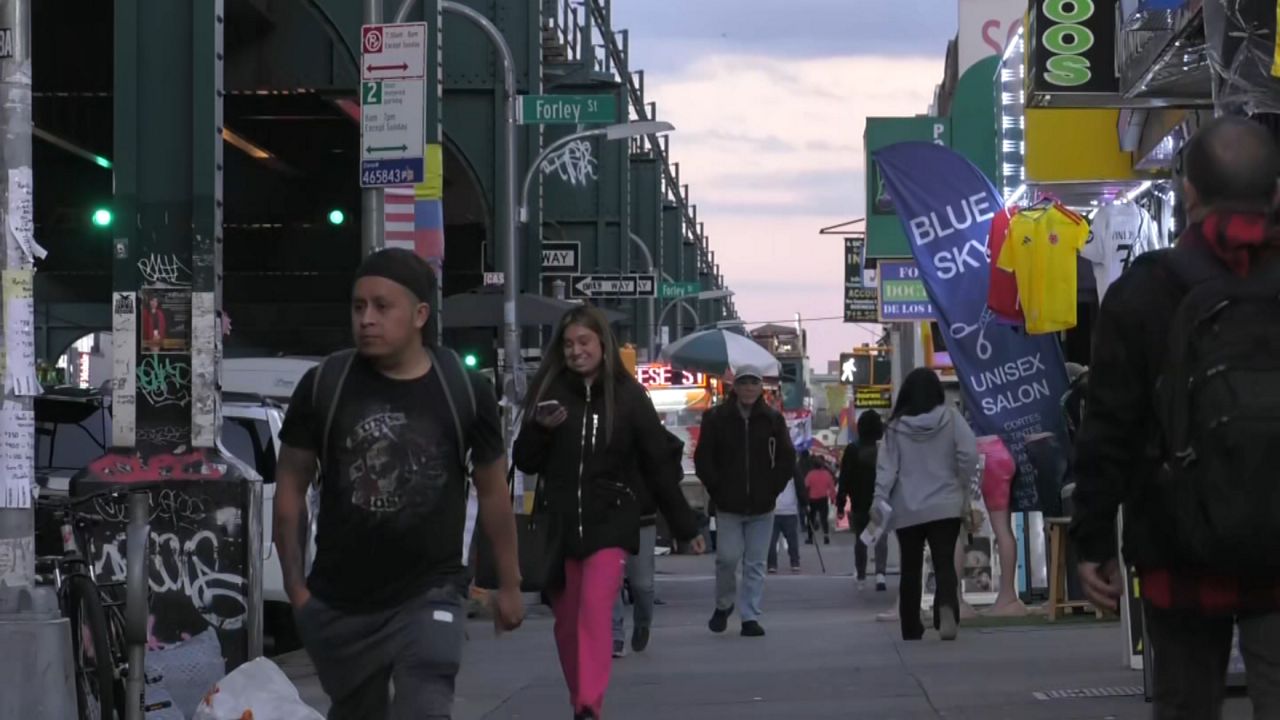In Jackson Heights, you can find many things, including food from all over the world and street vendors selling special goods — but you can’t find many parks.
City Councilman Shekar Krishnan wants to turn a new leaf on the area’s lack of public space.
The neighborhood has one park and one 1.3-mile stretch of open streets, but Krishan says that’s not enough.
What You Need To Know
Ahead of the mayoral election, officials and residents in Jackson Heights, Queens pointed to a range of quality-of-life issues that they want the next mayor to address
From a lack of public parks and ongoing prostitution concerns to vendor issues, the neighborhood has some priorities residents say they need addressed
Jackson Heights is known for its diverse population, with more than 150 languages being spoken in the neighborhood alone
Krishnan, along with local residents, is fighting to save a plot of land next to the local Episcopal church. Citing financial issues, the church is looking to sell the plot to a private developer.
But the councilman has an offer of his own.
“The idea we proposed is that the Parks Department buy the play yard and turn it into a small public park, and that way we protect and preserve the greenspace, and that also provides the church with the revenue that they can use to sustain their operations,” he said.
With a new mayoral administration on the horizon, Krishnan is hopeful the park situation will improve.
Off Roosvelt Avenue, there is a different type of fight happening.
Rosa Sanchez is the president of Restore Roosevelt Avenue. The local group formed a year ago amid growing concerns over prostitution.
Last October, Mayor Eric Adams launched a specialized task force to address the issue. A year later, City Hall says major crime has dropped nearly 35%.
Sanchez says the key to the issue is helping the women.
“These women, I know they have families and they should be having a helping hand from our local officials here, where they should be giving them training for programs. Unfortunately, they have not,” Sanchez said.
On Friday afternoon, NY1 witnessed multiple women on the avenue working. Sanchez and her group are completely against the decriminalization of prostitution.
“We have family values and know that education is really important for us,” she said. “And legalizing prostitution is a no-no for us in our community. And we are not going to tolerate it.”
On the corner of 73rd Street and 37th Avenue, you will find a small yellow food truck. Inside is where the city’s premiere Bangladeshi street food is made.
Naeem Khandaker started with one truck back at the end of 2017, and has now grown to nine, including a couple of restaurants.
“In my gut I thought, someone has to open the door to Bangledeshi food,” he said.
He says a major issue is the lack of new licenses that has forced new vendors like him to the black market.
“City give permit for I think, for $200 or $260. But people charge for this permit $20,000, $18,000. I think it’s a hustle,” he said.
The federal immigration crackdown in the city is affecting his business, with customers too afraid to buy food.
“If it’s $100, I would sell before. Now it’s not even $10 just because of ICE,” he said.

